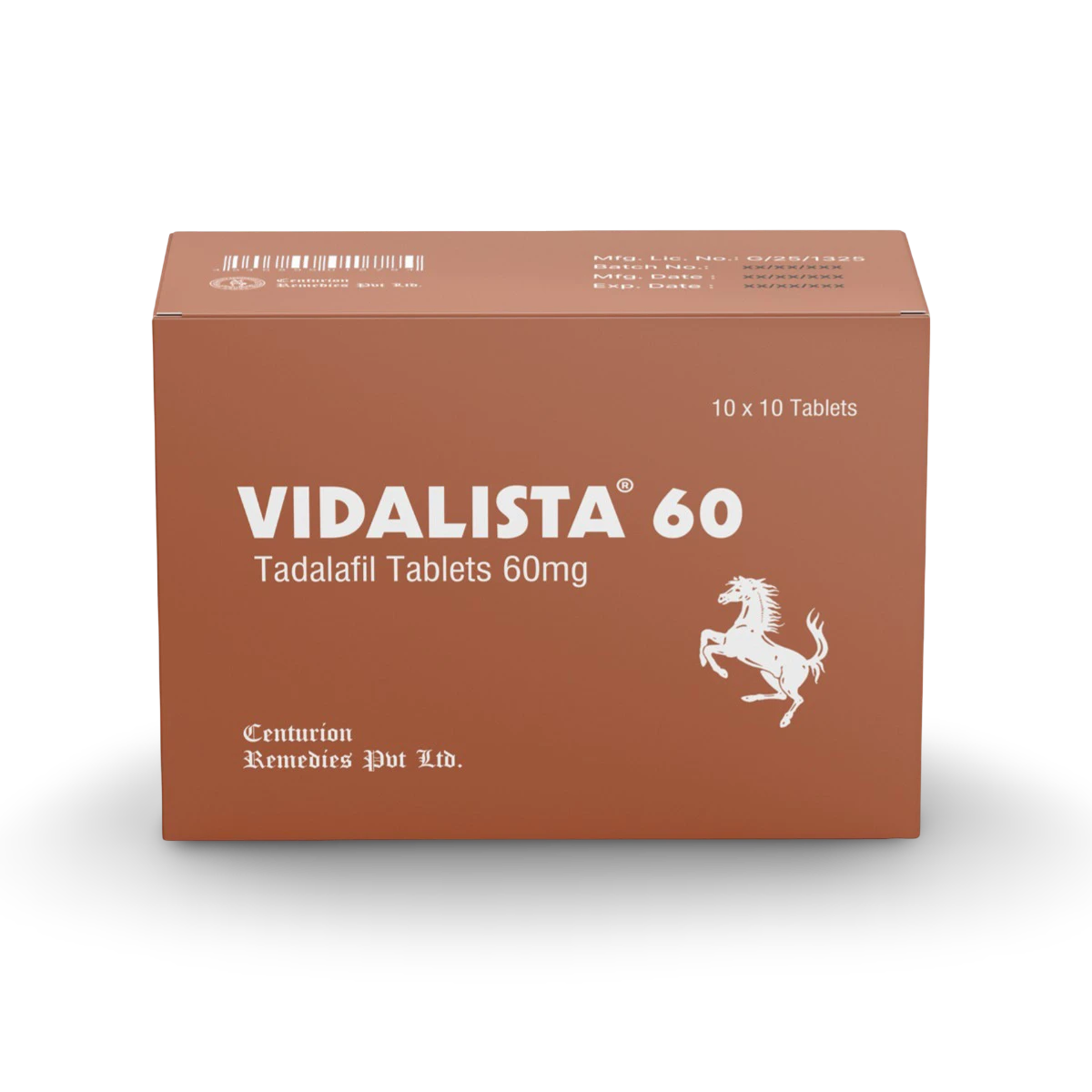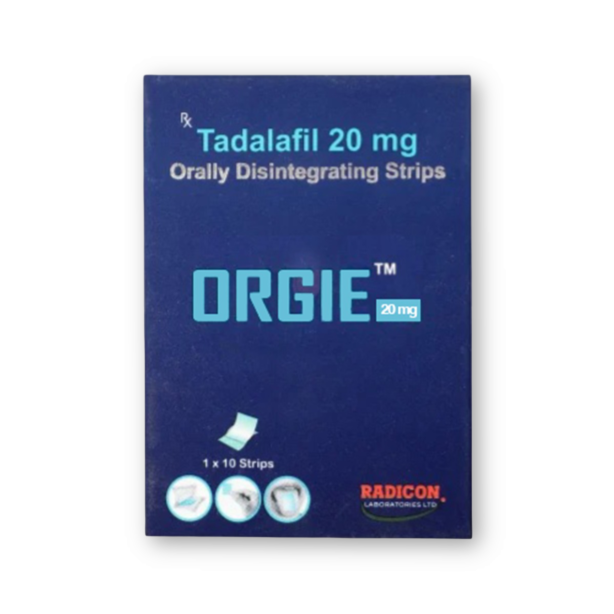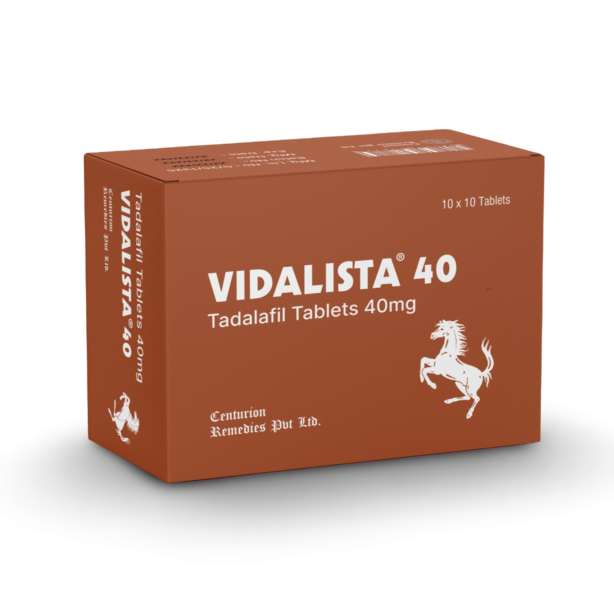Cialis, which contains the active salt Tadalafil, is a frequently prescribed medicine for treating Erectile Dysfunction (ED) in men or Assigned Males at Birth (AMABs). However, its mechanism of action also makes it beneficial for other conditions, including Benign Prostatic Hyperplasia (BPH) and Pulmonary Arterial Hypertension (PAH).
Cialis, known for its long-lasting effects compared to other ED pills, has become the preferred choice for many men around the world. But, how does Cialis work? Its effects arise from a finely targeted process inside the body’s vascular system that involves careful blood flow management, enzyme inhibition, and smooth muscle relaxation.
Understanding how the medication works not only defines its effect but also explains why it is a popular choice among many men seeking dependable and discreet relief from ED or urinary problems. This article will look at the science behind Cialis’s efficacy and popularity.
How does Cialis work for ED?
Tadalafil, the active salt in Cialis, is a Phosphodiesterase type 5 (PDE5) inhibitor that leads to an erection during sexual stimulation. The process begins with sexual stimulation, which triggers the penis to produce Nitric Oxide (NO).
NO then stimulates the enzyme guanylate cyclase, which generates cyclic Guanosine Monophosphate (cGMP). Elevated cGMP levels are required for smooth muscle relaxation in the penile arteries and tissues surrounding the penis, enabling greater blood flow into the penis, resulting in an erection.
Usually, the enzyme PDE5 degrades cGMP, effectively stopping the erection. However, Cialis blocks the PDE5 enzyme, preventing the cGMP from degrading quickly. This persistent presence of cGMP prolongs smooth muscle relaxation and increases blood flow, assisting in getting and maintaining a firm erection when sexual stimulation occurs.
Save up to 90% on your medicine bills

Vidalista 60 mg

Orgie 20 mg Oral Strips

Vidalista 40 mg

Cenforce 100 mg
How does Cialis treat BPH and PAH?
Tadalafil in Cialis eases BPH symptoms by relaxing smooth muscle fibers in the prostate and bladder neck by inhibiting the PDE5 enzyme. This relaxation increases urine flow and reduces symptoms, such as difficulties starting urination, a weak stream, or frequent urges, without directly decreasing the prostate.
For PAH, Cialis (Tadalafil) dilates the pulmonary blood arteries by inhibiting PDE5, which increases the availability of cGMP. Higher levels of cGMP relax the smooth muscle in pulmonary arteries, lowering pulmonary blood pressure and making it simpler for the heart to circulate blood through the lungs.
How soon does Cialis start working?
Cialis normally begins to work between 30 minutes to two hours after taking a pill, while some people may notice effects as soon as 15-20 minutes. This variation can be influenced by individual metabolism, dosage, and whether it is taken with or without meals (though food generally doesn’t significantly affect its absorption).
What actually distinguishes Cialis is its remarkable duration of action. The desired effects of Cialis can last up to 36 hours. This prolonged window, which has earned it the nickname the weekend pill, allows for more spontaneity in sexual encounters, without the need to precisely time the dose.
Unlike medications that require immediate planning, Cialis provides a more natural, less stressful experience. However, throughout this 36-hour period, an erection will only occur with sexual stimulation, since Cialis just boosts the natural physiological reaction rather than directly causing an erection.
For individuals using a daily low dose of Cialis, the medication keeps a steady level in the body, allowing for preparedness at any time rather than waiting for the medicine to take action before engaging in intimacy.
Factors affecting the working of Cialis
Several factors can affect how does Cialis works in the body, including dose, timing, food, alcohol intake, overall health, and underlying medical issues.
- Cialis can be taken with or without meals; however, a high-fat meal may cause it to take a little longer to take effect.
- Alcohol, particularly in excessive quantities, might reduce its efficacy by reducing blood pressure and raising the chances of encountering adverse effects, such as dizziness or headaches.
- Older men or those with weaker metabolisms might experience more extended effects.
- Furthermore, certain medications, such as Nitrates, Alpha-blockers, antifungals, and antibiotics, might interact with Cialis, decreasing its efficacy or raising the likelihood of getting side effects.
- Health issues like Diabetes, cardiovascular disease, and nerve damage can all limit the medicine’s effectiveness.
- Psychological factors, including Anxiety, stress, or Depression, might hinder the sexual stimulation, thereby decreasing the overall effectiveness of the pill.
Conclusion
Cialis (Tadalafil) is an effective and frequently used medication for ED that belongs to the Phosphodiesterase type 5 (PDE5) medication class. Many men taking it wonder how does Cialis works. By reducing the breakdown of cGMP, Cialis improves the body’s natural physiological reaction to sexual stimulation, resulting in increased blood flow and an erection.
Its lengthy duration of effect provides patients with significant flexibility. Furthermore, the way it works offers therapeutic advantages for disorders such as BPH and PAH by encouraging smooth muscle relaxation and increased blood supply in relevant tissues.
However, like with any prescription medicine, it is essential to use Cialis under the supervision of a healthcare expert, adhering to specified dosages and being aware of possible side effects and interactions.

Frequently Asked Questions
Why does Cialis stay longer than Viagra?
Cialis has a longer half-life (17.5 hours) than Viagra (4–5 hours). This allows Cialis to be effective for an extended period up to 36 hours, earning it the nickname of the weekend pill.
Does Cialis help everyone with ED?
No, Cialis may not be effective for men with ED due to severe nerve injury, Low Testosterone, or psychological problems. In such circumstances, different therapies or a combined strategy may be required.
Can Cialis increase sexual sensations?
No. Cialis does not immediately improve sexual feelings. Its primary goal is to improve erectile function, which may indirectly increase sexual pleasure by resulting in more satisfying and regular erections during sexual engagement.
Does Cialis enhance fertility?
No. Cialis has no direct effect on fertility or sperm production. However, by restoring erectile function, it may increase the probability of conception for couples whose ED prevents them from having intercourse.
Can women take Cialis?
No. Cialis is not authorized for women. While it increases blood flow, studies on women have produced conflicting effects in terms of arousal and sexual pleasure. Its usage in women is considered experimental and not encouraged.
When referencing outside resources, GoodrxMedicine always provides full citations. To learn more about the measures we use to maintain the quality of our content, please review our Content Information Policy.











